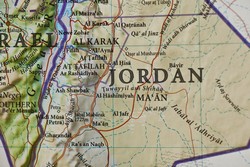Bilateral EU-Jordanian partnerships
BILAT is a European Commission programme supporting bilateral cooperation and dialogue between Europe and certain target countries. BILAT previously administered an EU partnership project (EU-JORDANNET, 2009-2012) in conjunction with Jordan's Higher Council for Science and Technology (HCST). The EU-funded project EU-JORDANNET II(opens in new window) (Enhancement of Jordan-European S&T partnerships) was a continuation and expansion of EU-JORDANNET. The aim was to extend the research collaboration between the EU and Jordan and to establish new relationships. The research relationships included academia and the private sector, which foster coaching activities for individuals. The project's monitoring and analysis has suggested future strategic policy interventions. The consortium conducted a one-day training session for Focal Points including the seven thematic NCPs, which was divided into two parts: a Horizon 2020 training programme plus a training/coaching model of the project. A separate training session for NCPs saw participation of 28 NCPs from the Mediterranean region. Thirty-eight attendees were hosted at a combined awareness/information day for incoming fellows. The project also organised the first Information and Communication Technologies (ICT) Thematic Partner Day, in conjunction with the MED-DIALOGUE project; the 38 participants demonstrated a high interest in ICT. The consortium further supported two Jordanian researchers to attend a major ICT conference. Another thematic workshop was held for Food and NMP where 90 Jordanian researchers were trained on proposal writing techniques and approaches on how to find partners. Special training on administrative and financial issues was delivered to 47 attendees (financial administrators and researchers). The project also organised a training workshop hosting 62 researchers. Sustainable follow-up was ensured by creating a LinkedIn group for participating researchers. In addition, a video conference was organised on the specific action Research and Innovation Staff Exchange (RISE) to provide more details about the action and how to build consortia. Eighteen Jordanian researchers have also been supported in their participation in EU events. Some were included at a meeting for a building project consortium, while others attended the Let's 2014 Conference and ICT Proposers' Day. EU-JORDANNET II supported research exchange and collaboration between the EU and Jordan. The efforts have led to a new policy dialogue and the promotion of Jordanian research in Europe.



